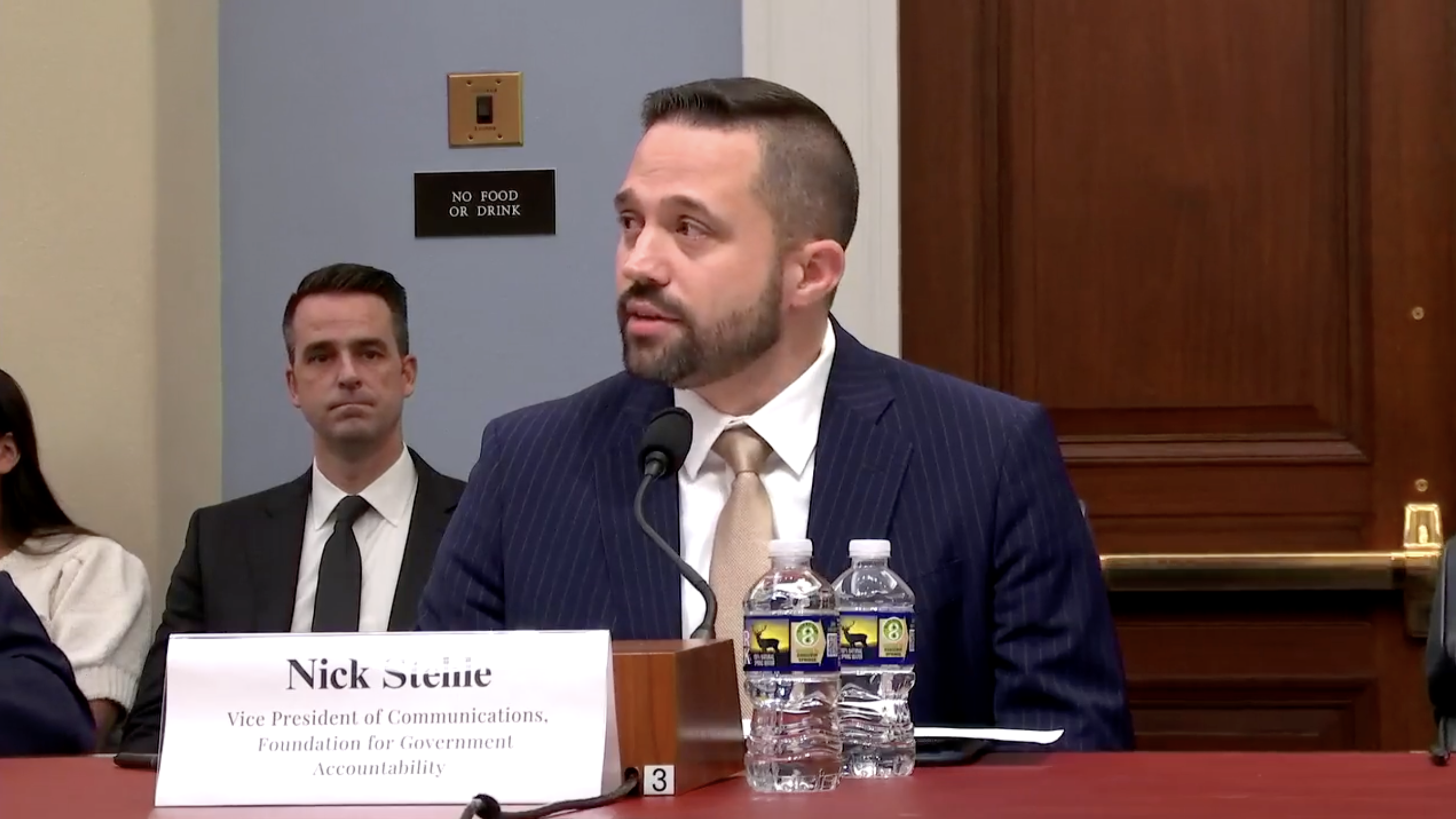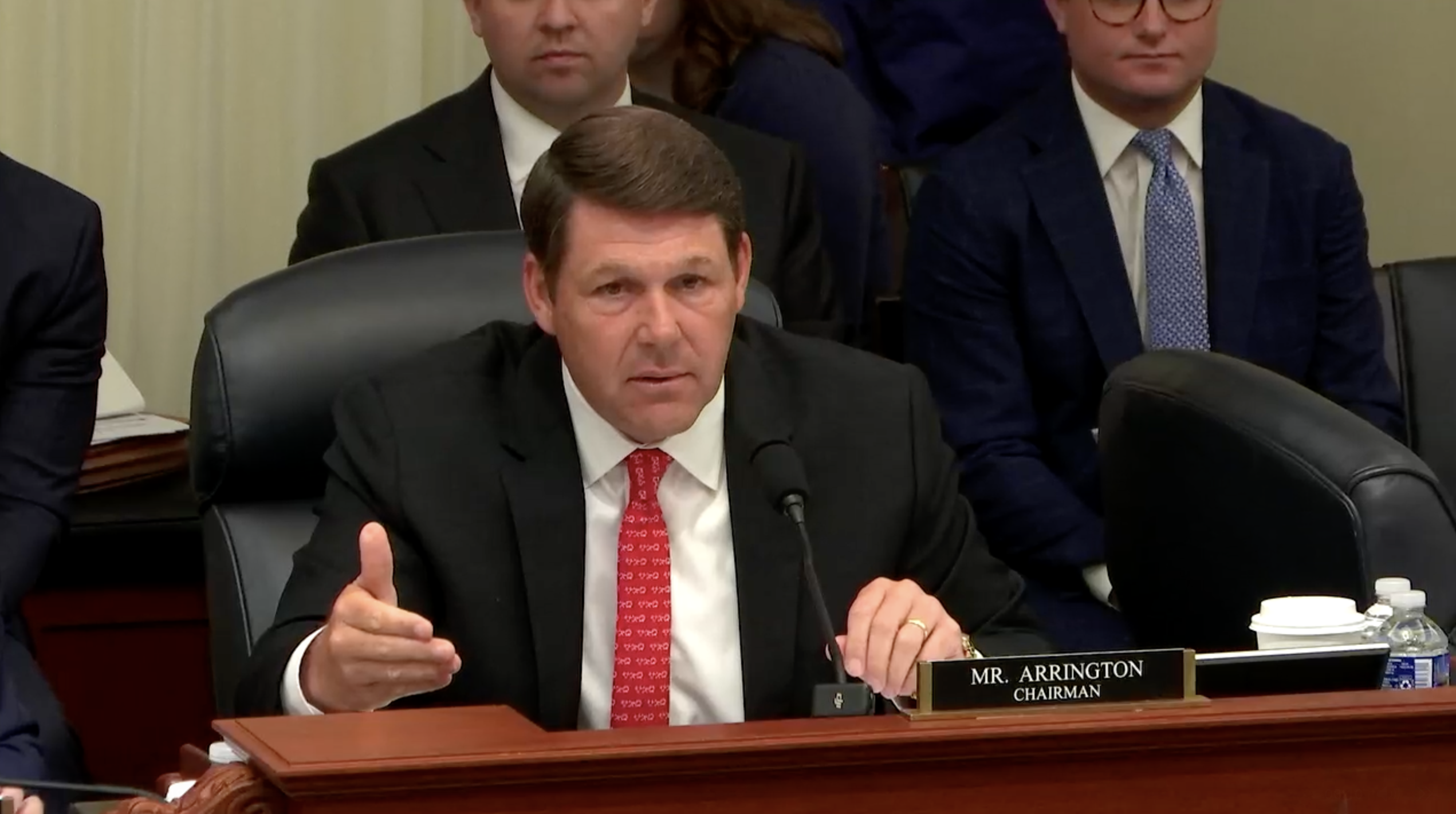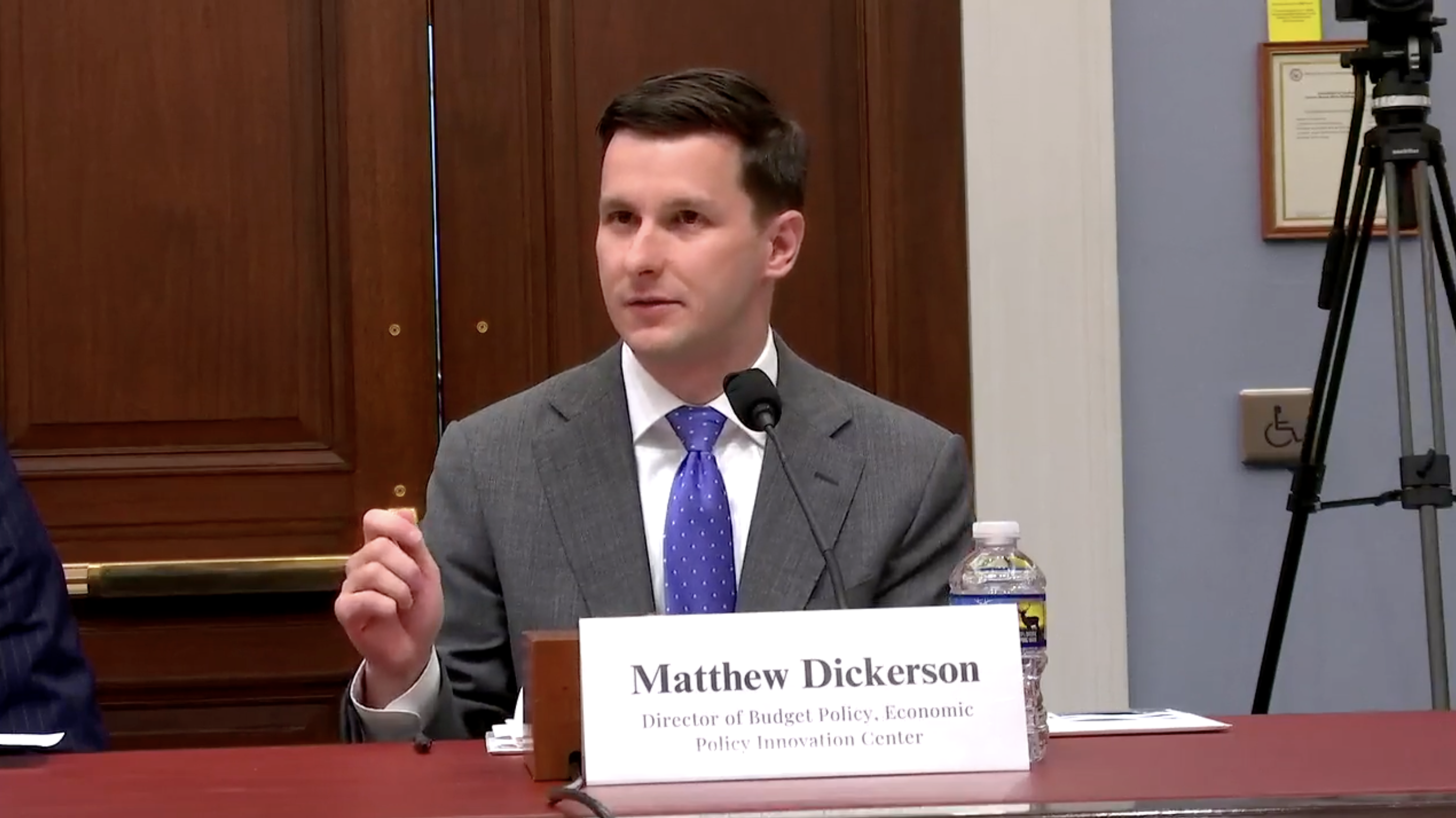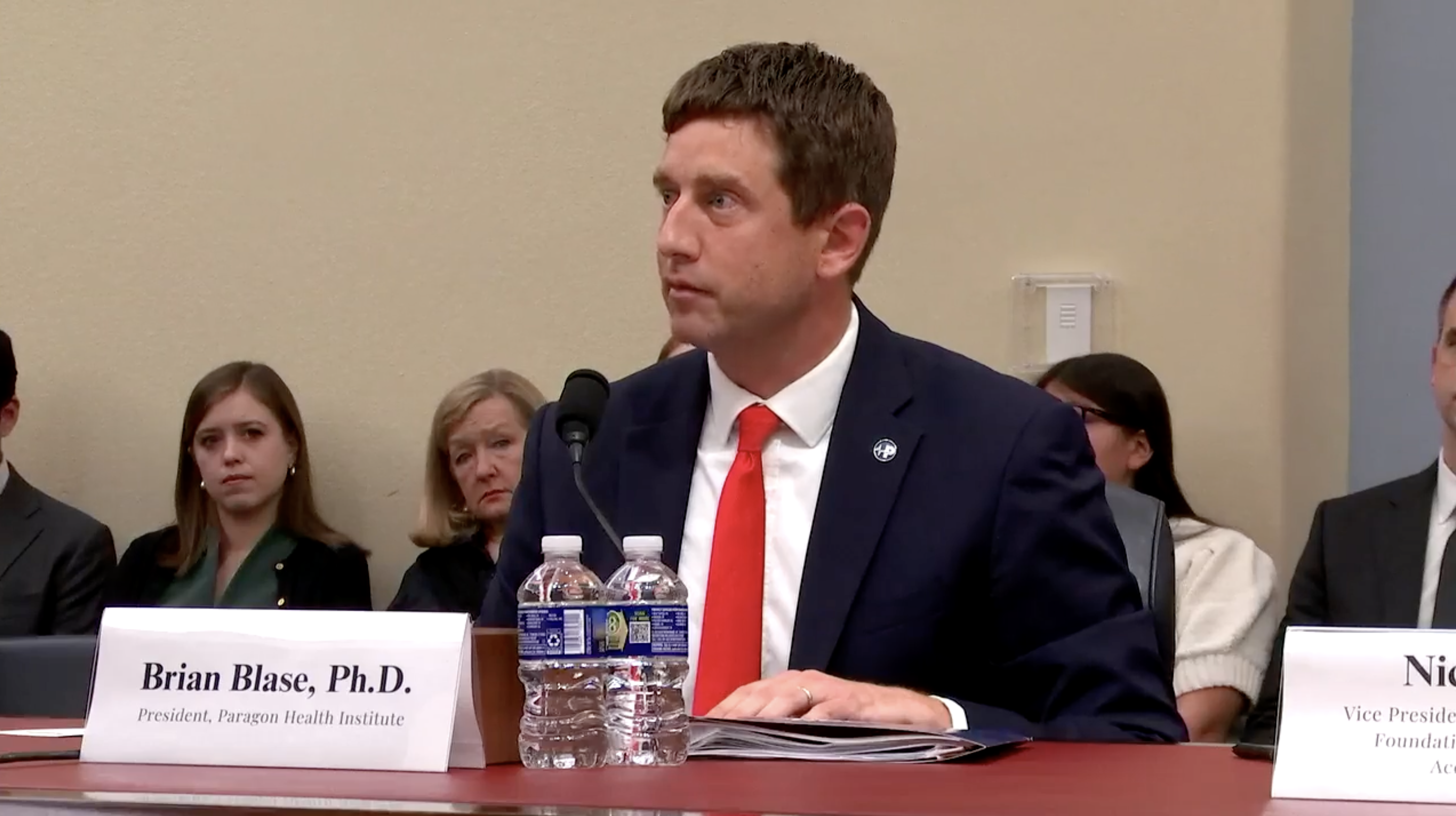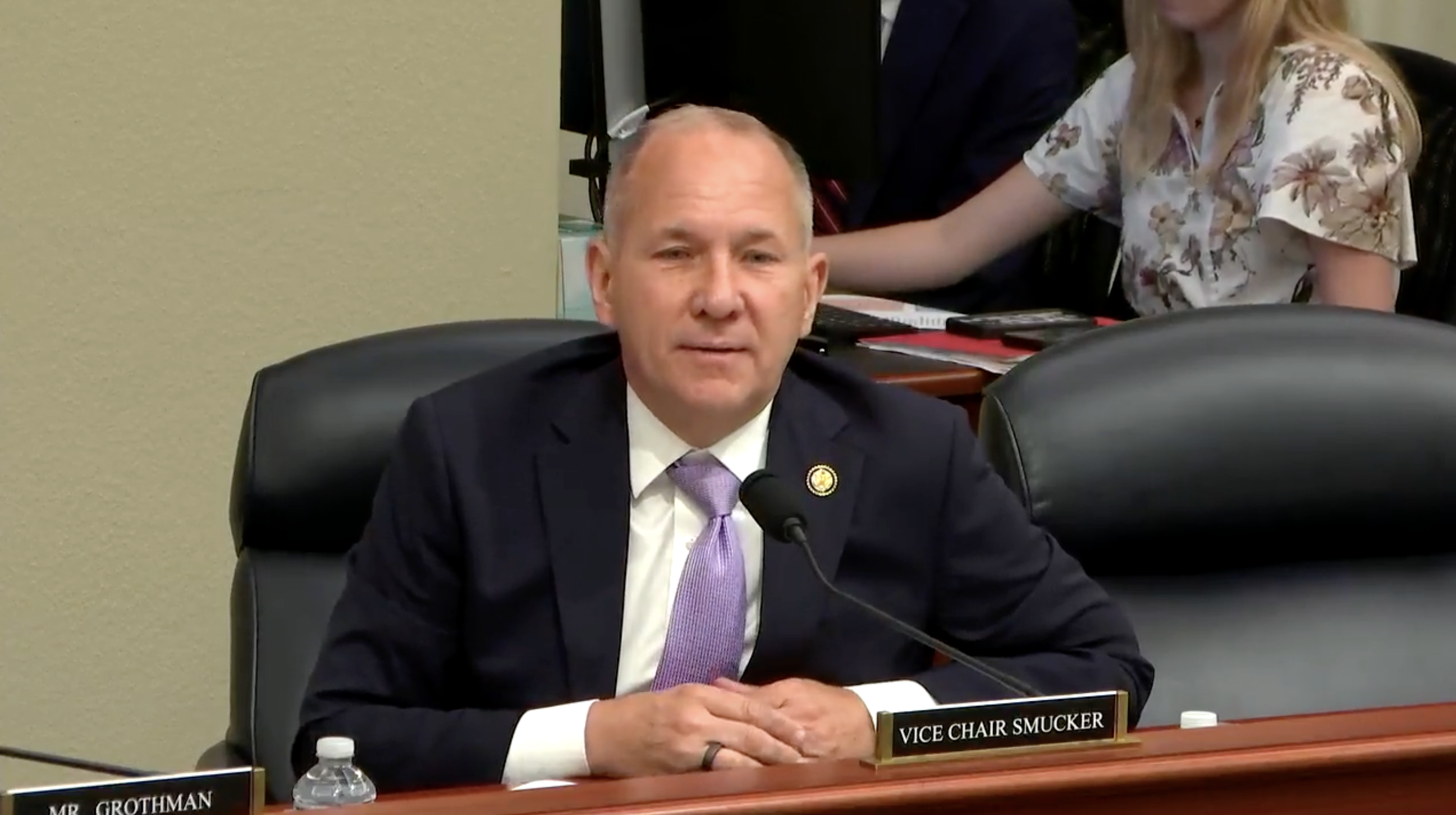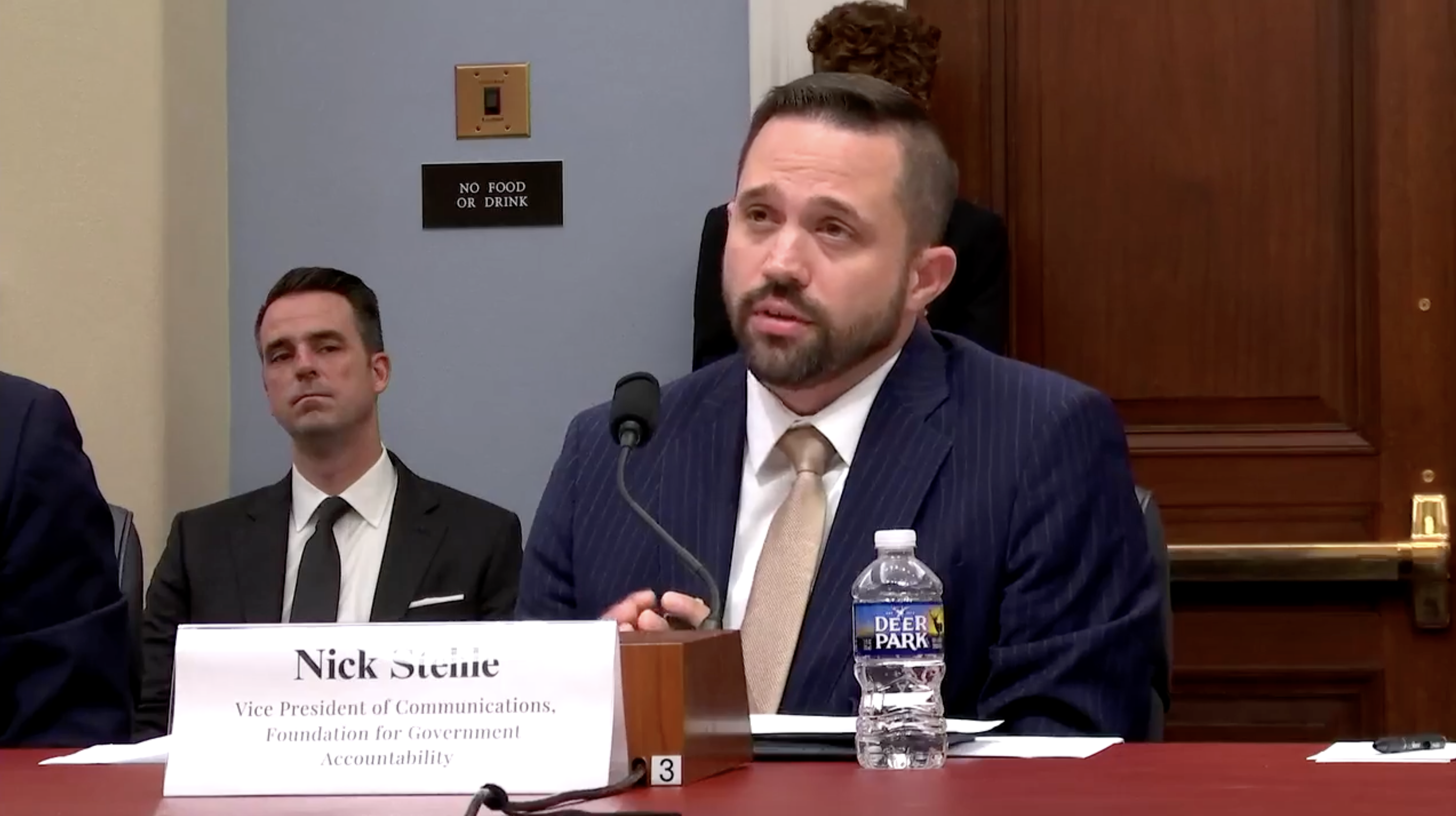Best Moments: Budget Committee Hearing on Rooting Out Waste and Fraud
WASHINGTON, D.C. – On Wednesday, the House Budget Committee held a hearing entitled, “Reversing the Curse: Rooting Out Waste and Fraud and Restoring the Dignity of Work.” The hearing featured testimony from majority witnesses—Dr. Brian Blase, President of Paragon Health Institute, Nick Stehle, Vice President of Communications at the Foundation for Government Accountability, and Matthew Dickerson, Director of Budget Policy at the Economic Policy Innovation Center—who offered Members their insights on he unchecked growth of waste, fraud, and abuse in the federal government’s entitlement programs.
1. Protecting Medicaid Resources for the Most Vulnerable:
Watch HERE.
Nick Stehle, Vice President of Communications, Foundation for Government Accountability — “Remember, every dollar that goes to an able-bodied adult on Medicaid who can and should be working is a dollar that doesn’t go to the people the program was intended to help. These aren’t just numbers on a sheet of paper. These are real people, including kids with intellectual or developmental disabilities. Real people like my son Luke, who is here for today’s hearing. Luke has severe autism and epilepsy...A couple of years ago, we sought out help through the home and community-based services waiver, so that he can get the critical Medicaid services he needs to help him be a part of the community and so that he can receive in-home care when my wife and I can’t be there. At the time, we were told that the average wait for someone like him was 11 years. He becomes an adult in a little over 200 days. At this point, we don’t know when he'll ever move off that list. It’s easy to talk about Medicaid reform. It’s another thing entirely to live it. I see firsthand how able-bodied adults, 62% of whom do not work, are siphoning away resources that can and should go to fund services for our most vulnerable. These groups move to the front of the line while kids like Luke wait years for the services they urgently need...Imagine being a single mom to a son with autism and epilepsy. You’re working hard, trying to keep a roof over your head, and you’re told, as we were, that help is coming, in 11 years. Meanwhile, your state is spending hundreds of millions of dollars on able-bodied adults who move to the front of the line, ahead of your child...Does that sound right to anyone in this room?
2. CBO Sets Record Straight on OBBBA’s Medicaid Provisions:
Watch HERE.
Budget Chairman Jodey Arrington (R-Texas): “This is the same nonpartisan, independent CBO that was referenced by my Democrat colleagues, and they state very clearly that the 7.8 million people are people who are able to work who refuse to work. Legally ineligible, but we don’t do or haven’t done the sort of program integrity implementation and enforcement, like verifying people’s eligibility, or they qualify for some other government-subsidized health insurance, or one and a half almost million people are here illegally and should not benefit from taxpayer-funded social services.
“We’re having a tough time. We’re $36 trillion in debt, $2 trillion in annual deficits, a trillion dollars in interest, and a future insolvent Social Security Trust Fund along with Medicare. And the list of disastrous concerns into the future on fiscal sustainability of these programs continues. But that’s it. They literally say, ‘CBO estimates that enacting the Medicaid provisions in title IV would increase the number of people without health insurance by 7.8 million in 2034.’
“Of that number, 4.8 million are people who are able to work who refuse to work. Of that 7.8, 1.5 million almost are here illegally, 1.6 million are eligible for another government-subsidized health insurance and refuse to get it. So, we need to set the record straight.”
3. Strengthening SNAP and Ensuring It Promotes Better Outcomes for Beneficiaries:
Watch HERE.
Matthew Dickerson, Director of Budget Policy, Economic Policy Innovation Center (EPIC): “The One Big Beautiful Bill’s cost-sharing requirement that’s based on improper payment rates would not reduce or change total benefit spending on food stamps. But it would promote better outcomes for beneficiaries. It would promote fairness and fiscal federalism. The One Big Beautiful Bill would also make significant progress in promoting opportunity over dependency by restricting loopholes and enforcing work requirements.
“While 13 million able-bodied adults received benefits in 2022, fewer than 3.6 million able-bodied adults without dependents were supposed to be subject to work requirements. But many of these work-capable individuals could receive welfare benefits without working due to geographic waivers and no good cause exemptions. Because of the loopholes, 84% of those who were supposed to be subject to the work requirement did not work the 20 hours per week. There is an inherent dignity in honest work. Work is not a punishment, but instead, it provides an important source of purpose for people. It’s demeaning to believe that many Americans are simply unable to be successful and should be relegated to a life of dependency and perpetual government subsidization of their basic needs.”
4. Taking the Necessary Steps to Rein in Runaway Spending:
Watch HERE.
Brian Blase, Ph.D., President, Paragon Health Institute: “CBO projects $1.9 trillion more spending on Medicaid and Obamacare over the next decade than it forecast at the start of the Biden administration. I will address three major problems. First, massive improper enrollment. Paragon research shows 6.4 million people enrolled in fully subsidized Obamacare plans who do not qualify. As a pandemic measure, President Biden signed legislation that expanded subsidies, making coverage fully subsidized for people with income between 100 and 150% of the poverty line. The Biden administration curtailed eligibility verification and disregarded mounting evidence of improper enrollment. Large fraud rings emerged that misled applicants with free perks, coached income misstatements, and profited from commissions, while insurers reaped windfall profits.
“A recent Bloomberg News exposé quotes agents saying half of enrollees had no idea they were signing up. One broker said, quote, “You have to throw away a little bit of your morality.” End quote. Improper exchange enrollment will cost the government nearly $30 billion this year. Automatic re-enrollment perpetuates improper enrollment. Nearly half of current exchange enrollees took no action during open enrollment and were simply auto-re-enrolled. Fraud led to plans being switched and canceled without enrollees’ knowledge. Millions have other coverage or don’t know they're enrolled. On Medicaid, the Biden administration extended the COVID public health emergency, leaving nearly 20 million ineligible people on Medicaid. The administration then made it harder for states to remove ineligible recipients.”
5. Defending the Dignity of Work:
Watch HERE.
Budget Vice Chairman Lloyd Smucker (R-Pa.): “We want to ensure that every American does have access to health care and hopefully can have access to good health care and affordable health care. But I can tell you what drives some of my constituents nuts and that is if dollars are going to individuals who are here illegally and threaten the program that is here for Americans. Every dollar going to someone who is here illegally means that’s a dollar taken potentially from an American. And then secondly, they want people to do their part as well. And if there are individuals who are not doing their part, who could be working and aren’t, they’re not in much of a mood to continue to provide that assistance to people who aren’t doing their part…What we’re trying to do is ensure that everyone who is receiving dollars from taxpayers is doing what they can to ensure that they’re doing their part. There’s a survey that came out that I thought was really interesting recently. This is not talking about every recipient of Medicaid, in fact, just a small percentage, but the American Time Use Survey found that childless, able-bodied Medicaid recipients who do not work spend an average of 4.2 hours per day playing video games and watching TV.”
6. Preventing Further Expansion of the Medicaid Program:
Watch HERE.
Nick Stehle, Vice President of Communications, Foundation for Government Accountability — “I’m here, because expansion hurts the truly vulnerable in two really key ways. The first one is waiting lists which we’ve talked a little bit about and then also perverse incentives. So on that, I have three numbers that I want to share with you that I think are important: 85%, 700,000, and 36,000. Eighty-five percent is the enrollment increase over the last 10 years directly attributable to able-bodied adults. 700,000 Americans on disability or with disabilities languish on waiting lists in this country. And then 36,000 in a dozen or so expansion states that responded to our FOIAs, more than 36,000 disabled individuals have died while waiting for their spot for those waivers since expansion began. Then just to sort of wrap that up, we’ve got 62% of able-bodied adults who are on Medicaid who are not working. That is a massive problem that’s got to be dealt with.”
MORE FROM THE HOUSE BUDGET COMMITTEE:
Find Chairman Arrington’s opening remarks from the House Budget Committee’s hearing, “Reversing the Curse: Rooting Out Waste and Fraud and Restoring the Dignity of Work” HERE.
Read Chairman Arrington’s statement on the Congressional Budget Office’s updated estimates of the impacts of Medicaid policies within the House-passed One Big Beautiful Bill Act HERE.
Read H.R. 1, the One Big Beautiful Bill Act HERE.
# # #


